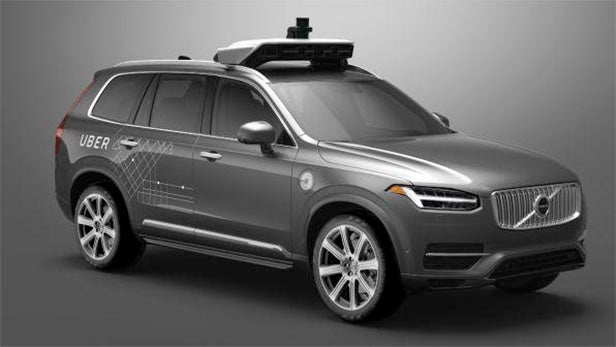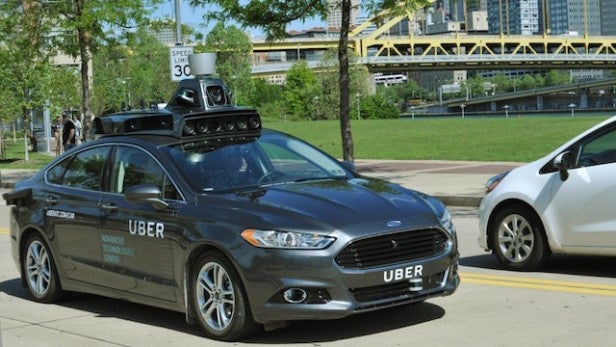Uber hits back at claims it copied Google’s driverless car tech

It’s been a tumultuous couple of months for app-ordering taxi service Uber.
From sexist comments to being banned in Italy, the company has been facing a tough time, and recent accusations that its driverless car programme was based on stolen Google technology hasn’t helped matters.
Now, however, Uber has hit back, claiming suggestions its self-driving cars are based on patented Google ideas are “demonstrably false.”
A lawsuit filed in February of this year claimed that former Google employee Andrew Levandowski had stolen 14,000 documents relating to the company’s work on LiDAR, a key technology in driverless cars.
Mr Levandowski is reported to have used these documents when co-founding Otto, a self-driving truck company that Uber last year acquired in a $660m deal.
Related: Death by driverless car, who’s to blame?

The filing, made by Google spinoff Waymo requested that the disputed technology be hit by an injunction, a move that would have seen Uber’s fleet of self-driving cars resigned to the garage.
Uber, however, has now hit back, taking a hard stance against the claims.
“Waymo’s injunction motion is a misfire,” said Angela Padilla, a lawyer for Uber.
“There is no evidence that any of the 14,000 files in question ever touched Uber’s servers, and Waymo’s assertion that our multi-lens LiDAR is the same as their single-lend LiDAR is clearly false.
“If Waymo genuinely thought that Uber was using its secrets, it would not have waited more than five months to seek an injunction.
“Waymo doesn’t meet the high bar for an injunction, which would stifle our independent innovation – probablyy Waymo’s goal in the first place.”
Despite its firm claims of innocence, Uber isn’t in the clear just yet, with the case’s presiding judge having mounted pressure on the firm.
Although Uber claims the incriminating files were never hosted on its servers, it’s been unable to prove they were never stolen in the first place.
“If you cannot find them in your files there is going to be a preliminary injunction,” Judge William Alsup warned recently.
“You’re not denying it, no one is denying he has the 14,000 files. You keep on your payroll someone who took 14,000 documents and is liable to use them.
“This is an extraordinary case. I have never seen a record this strong in 42 years. So you are up against it.”
WATCH: How to improve Wi-Fi
Has Uber lost your support in recent months? Let us know below.

